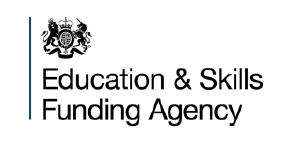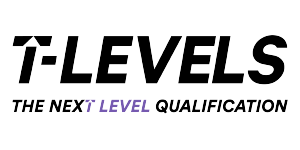Summer break is a time for relaxation, fun, and making memories with friends. But, if you’re a young person aged 16-18 and looking to take the next big step towards college or an apprenticeship, it’s also an opportunity to gain valuable experience, earn some money, and get a head start on your future career!
How long is summer break?

Summer break in the UK lasts for around 6 weeks. It’s important to note that this varies depending on where you are located.
It goes without saying that 6 weeks is a hefty amount of time off! At ACC, we understand the importance of making the most out of your summer break, and we’re here to help you do just that! Here are some different ways you can make your summer break count:
1) Attend workshops or engage in free courses

Feeling bored? There’s no need to when there are hundreds of free courses out there! For some online courses, all you need is a mobile device, such as a phone or tablet. Even if you’re away, consider sparing some free time to invest in yourself and building your skillset. Many courses are self-paced, meaning you can pick them up anytime, anywhere. Grab your headphones and away you go. After all, it may well pay off! We’ll cover more about paid opportunities a little later in this blog.
Udemy is one example of a fantastic online academy that offers countless courses, from graphic design to music production, you’re bound to find something to your liking. Free Courses in England also exists to provide you with a variety of courses, ranging from digital marketing to coding and more. Summer is the perfect time to enhance your skills and learn something new. Look for workshops, short courses, or online classes that are related to your chosen field of study or interest.
Pursuing workshops not only shows your commitment and passion, but also provides you with the opportunity to network with industry professionals and like-minded individuals. Plus, learning new skills can make you stand out from the crowd when applying for college or apprenticeships. Remember to add any accreditations achieved to your CV! For example, the Free Coding Bootcamp offers bootcamps across the UK, throughout the year.
2) Get summer work experience
One of the best ways to gain experience and earn money over the summer is by taking on freelance projects or internships related to your field of interest. Whether you’re interested in music production, graphic design, or event management, there are plenty of opportunities out there for both young creatives and industry enthusiasts alike.
Start by reaching out to local businesses, artists, or event organisers and offer your services. Websites like Upwork, Freelancer, or even social media platforms can be great places to find freelance gigs. Not only will you earn money, but you’ll also gain valuable experience and build your portfolio, which will be beneficial when applying to college or apprenticeships.
3) Gain relevant volunteering experience

Volunteering is a brilliant way to give back to the community, gain valuable experience, and make connections in your industry. Look for volunteer opportunities at local music festivals, art galleries, or community events that align with your interests.
If you’re interested in music production, volunteering at a local music festival or community radio station can provide you with hands-on experience and insight into the industry. Similarly, if you’re interested in graphic design or marketing, offering to help with promotional materials for a local charity event can be a great way to build your portfolio and skills.
4) Expand your network
Networking is crucial in any industry, and the summer break is a great time to start building your professional network. Consider creating a LinkedIn profile and connecting with professionals in industries you’re interested in. Don’t be afraid of attending some industry events, joining online forums or social media groups. Engaging with peers who share your interests can put you one step ahead when it comes to your next steps, whether it’s education or entry-level employment opportunities, like apprenticeships.
Networking can open doors to new opportunities, mentorship, and even job offers. Plus, building relationships with industry professionals can be incredibly beneficial when it comes to applying for college or apprenticeships, as they can provide you with valuable insights and recommendations.
5) Research and plan for your future

Another great way to make the most of your 6-week break is to research colleges, apprenticeships, or other career pathways that interest you. Visit college websites, attend open days, and reach out to admissions teams or industry professionals to learn more about your options.
If you’re considering multiple options and can’t choose, it’s a good idea to weigh up the pros and cons of each.
Consider applying for college in the summer
If you’re looking into attending college, you may want to consider applying in the summer. Here are several reasons why:
- More time to prepare: by applying to college with plenty of time to spare, it gives you the time to prepare for any interviews. In addition to this, you can start thinking about creating a checklist of anything you’ll need. For example, at ACC, we take the stress out of gathering equipment needed for your chosen course by selling ready-to-go course starter packs.
- Financial planning: applying early also helps you understand your financial needs earlier on. This gives you more time to consider transportation, scholarships, or grants.
- Less competition: many students apply close to the deadline, so putting your application forward in the summer may mean you face less competition.
What are some summer job opportunities?

If you’re looking for some other ideas on how to earn cash this summer, you’ll be pleased to hear we have plenty more ideas to share.
- Retail: working in retail can be a fantastic opportunity to develop your customer service and teamwork skills, these are often sought after by employers.
- Hospitality: money is a major influencing factor in getting a job, of course. But, free food can sometimes be a major perk too… Some customers even tip generously if you provide an excellent service.
- Tourism and leisure: if you’re lucky enough to live close to a theme park, cinema or zoo for example, it’s worth stopping by and dropping off your CV in person. Not only does this mean (potentially) free or discounted access, but you also have the opportunity to make a few extra quid!
- Tutoring or teaching: if you have a skill, don’t be afraid to share it! Sharing is caring after all. Rates for tutoring can vary, and if you aren’t with an agency, you can set your own rate.
Here’s what you need to know about planning for college
Planning for college will help you feel calm and well-informed when it comes to starting. It’s also completely normal to feel a bit nervous when it comes to switching from high school to college. The good news is that it’s a pretty smooth transition, and by preparing in advance, you are likely to settle in even quicker.
First and foremost, it’s important to start early and research colleges that are best suited for your academic interests, career goals, and personal preferences. It’s also a great idea to attend specific events run by colleges, such as open days to get a feel for it.
Don’t underestimate the importance of visiting your college of interest, talking to current students, and seeking guidance from staff to ensure you are well educated on the application process. Planning for college will require some effort on your part, but it will pay off by ensuring a successful transition!
At ACC, we offer a range of courses in music, games, media, and events, as well as apprenticeships through Access Industry. Take the time to discover how we can help you turn your passion into a rewarding career!

















